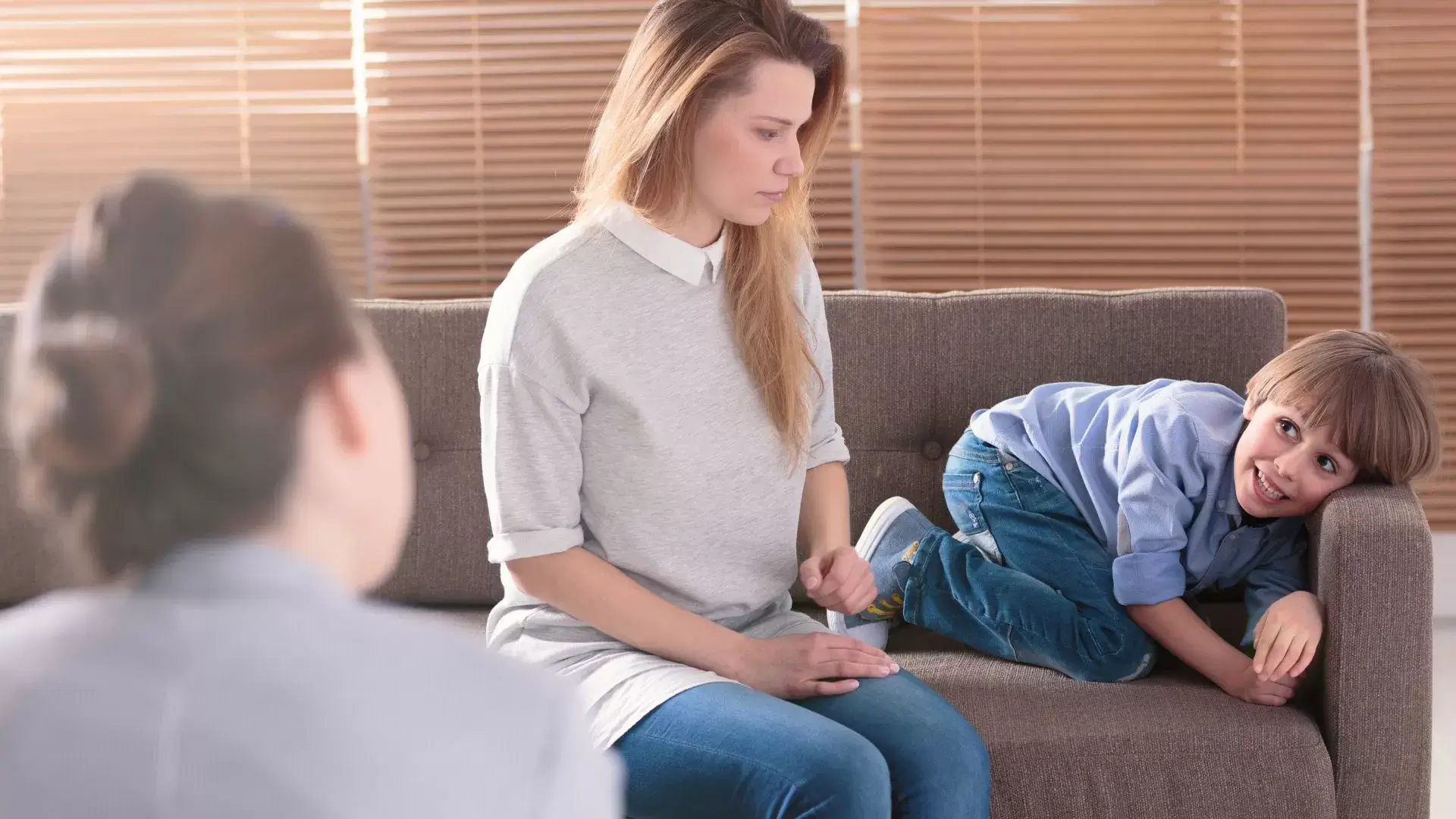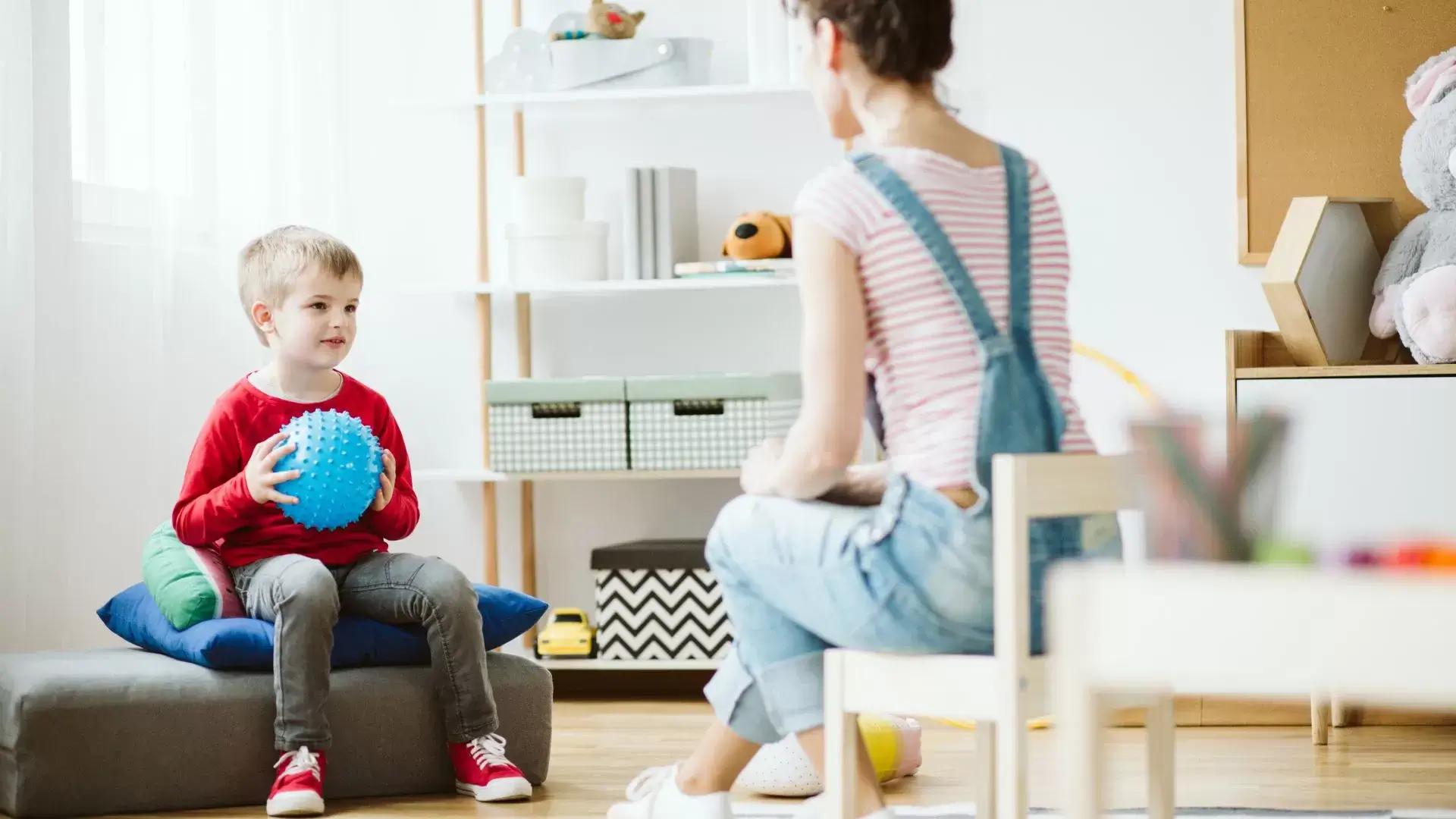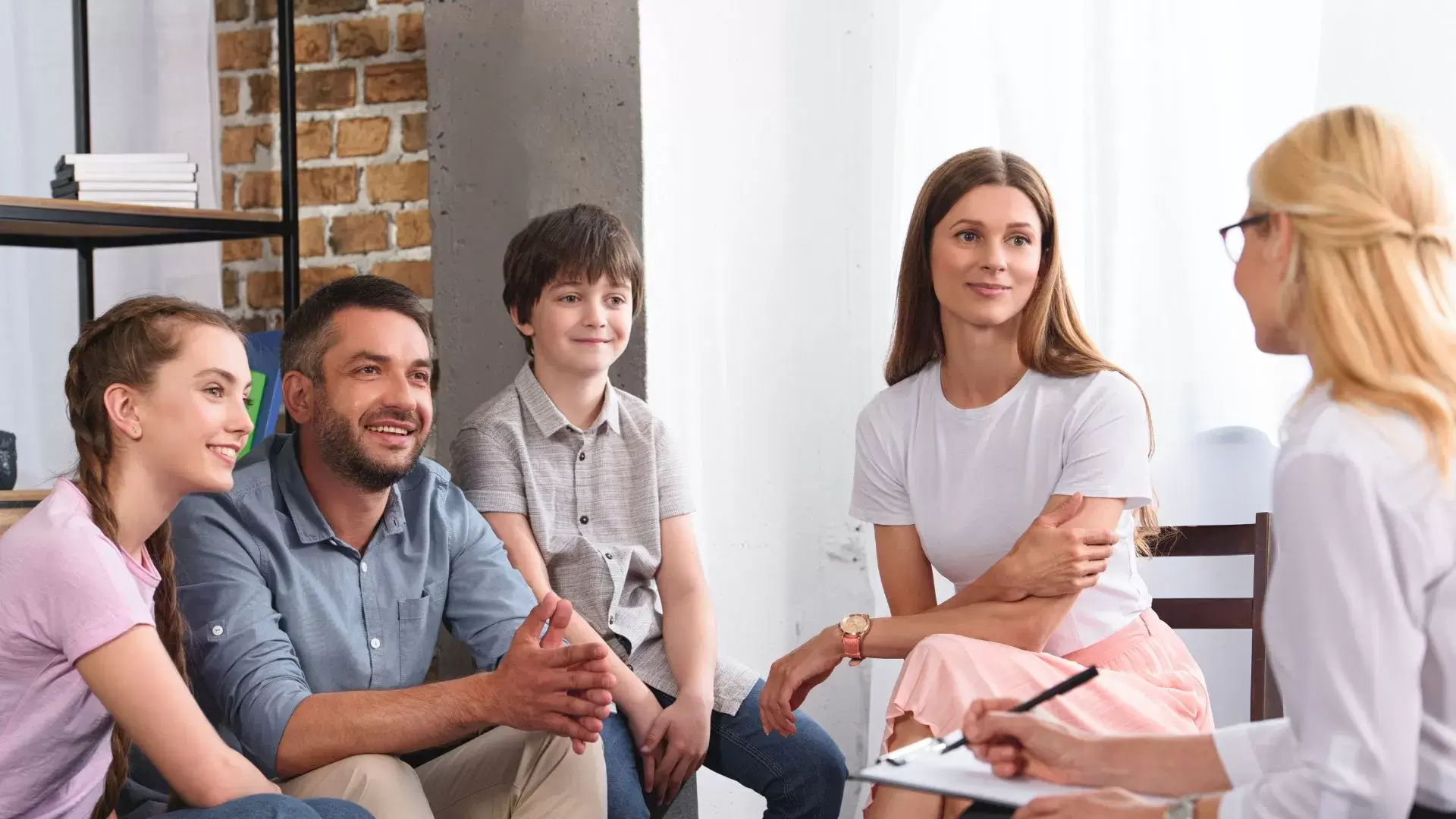To reduce arguments with someone who has ADHD, we can adopt compassionate communication strategies. First, let’s allow them space to regulate their emotions and avoid judgment. Keeping our messages brief and clear helps prevent misunderstandings. We should stay focused on the present issue, practice active listening, and avoid interrupting. It’s important to acknowledge and validate their feelings, fostering trust. By understanding ADHD-related distractions, we create a supportive environment. Ultimately, seeking help from professionals can provide tailored strategies. These thoughtful approaches strengthen our connection and ease tensions, leading to a more harmonious relationship. There’s plenty more we can explore together on this topic.
About Oakville Psychotherapist
At Oakville Psychotherapy, we recognize the unique challenges individuals with ADHD face, and we’re committed to providing tailored support that fosters healthier communication and reduces conflict. Our experienced team of psychotherapists understands that ADHD can impact relationships in profound ways. By focusing on evidence-based strategies, we help clients develop skills that enhance their interpersonal dynamics.
Located at 243 North Service Rd W #106F, Oakville, ON L6M 3E5, we create a welcoming environment where individuals feel safe to explore their emotions and thoughts. We believe that effective therapy involves collaboration, and we work closely with our clients to identify triggers and develop coping mechanisms. Our compassionate approach guarantees that everyone feels heard and understood, which is essential for building trust.
If you or someone you know is struggling with ADHD-related conflicts, don’t hesitate to reach out. You can contact us at (647) 360-5880 to schedule a consultation. Together, we can navigate the complexities of ADHD and foster healthier relationships, ultimately reducing arguments and enhancing understanding. Let’s work together to create a supportive path forward.
Allow Them Space to Regulate Their Emotions
Allowing individuals with ADHD the necessary space to regulate their emotions can greatly reduce the likelihood of escalating conflicts and promote a more harmonious atmosphere. When we recognize that they may need time to process their feelings, we create an environment that fosters understanding and patience.
We can start by observing their emotional cues. If we sense they’re becoming overwhelmed or agitated, it’s crucial to give them a break. This might mean stepping away from a heated conversation or providing a quiet space where they can collect their thoughts. We should communicate our willingness to revisit the topic later, reassuring them that their feelings are valid and important.
Encouraging self-regulation techniques can also be beneficial. We might suggest deep breathing, taking a walk, or engaging in a calming activity. By doing this, we’re not only supporting their emotional needs but also enhancing our own relationship dynamics.
Ultimately, allowing space for emotional regulation isn’t about avoiding conflict; it’s about creating a foundation for constructive dialogue when both parties are ready. With patience and empathy, we can nurture healthier interactions and promote lasting understanding.

Avoid Judgment and Criticism
To foster a supportive environment, we need to consciously avoid judgment and criticism, as these can exacerbate feelings of inadequacy and defensiveness in individuals with ADHD. Instead of pointing out what they might be doing wrong, let’s focus on understanding their perspective and experiences. This approach encourages open dialogue and reduces the likelihood of arguments.
When we notice behaviors that concern us, we can frame our observations in a way that emphasizes care rather than blame. For instance, instead of saying, ‘You never listen,’ we could express, ‘I feel unheard when we’re discussing important topics.’ This subtle shift can invite a more constructive conversation.
Moreover, it is crucial to remember that ADHD can impact attention, impulse control, and emotional regulation. By recognizing these challenges, we can cultivate patience. We should aim to validate their feelings, acknowledging that their experiences are valid, even if we don’t fully understand them.
Keep Your Messages Brief and Clear
Maintaining clarity in our communication can greatly reduce misunderstandings and arguments, especially when we keep our messages brief and straightforward. When we simplify our language, we’re less likely to overwhelm the person with ADHD, who may struggle with processing complex information. Short, direct sentences can help convey our thoughts without unnecessary distractions.
We can start by stating our main point right away. Instead of adding layers of context, let’s focus on what’s essential. If we need to address an issue, we should present it clearly, allowing the other person to grasp it quickly. This approach helps maintain their attention and minimizes the chances of them feeling lost or frustrated.
Additionally, using bullet points or numbered lists can be effective. These formats break down information into digestible snippets, making it easier for both of us to follow along. We should also encourage questions, creating a space for clarification without judgment. By fostering a supportive environment, we build trust and understanding. Overall, keeping our messages concise not only enhances clarity but also nurtures a healthier dialogue between us.

Stay Focused on the Present Issue
Focusing on the present issue helps us navigate conversations more effectively, preventing past grievances from clouding our discussion. When we engage with someone who has ADHD, it’s vital to keep our attention anchored to the current topic. This approach not only minimizes confusion but also reduces the likelihood of escalating tension.
We might start by clearly stating the specific issue at hand. By doing so, we set a shared understanding of what we’re discussing. If the conversation drifts into past conflicts or unrelated matters, we can gently steer it back. Phrases like, “I understand that’s important, but let’s focus on what’s happening right now,” can be helpful.
It’s also essential to actively listen and validate their feelings without getting sidetracked. By acknowledging their perspective, we show that we value their input while still prioritizing the present concern. This balanced approach fosters a more productive dialogue, allowing us to work collaboratively toward a resolution.
In essence, by concentrating on the current issue, we create a safe space for open communication and understanding, paving the way for a healthier relationship.
Choose the Right Time to Communicate
Finding the right moment to communicate can greatly enhance our discussions, especially when addressing issues with someone who has ADHD. We need to be mindful of their emotional state and energy levels, as these factors can considerably influence how they receive our messages. Timing is vital; if we approach them during a stressful moment or when they’re distracted, our words may fall flat or escalate tension.
Let’s look for times when they seem more relaxed and receptive. Perhaps it’s after a meal or during a quiet moment in the evening. We can also pay attention to their routine, identifying patterns when they’re most engaged and open to conversation.
Additionally, we should consider our own state of mind. If we’re feeling frustrated or overwhelmed, it’s best to take a step back and wait for a calmer moment. When both parties feel at ease, we create a safe space for open dialogue, fostering understanding and reducing the likelihood of arguments. By being intentional about the timing of our discussions, we can build a more supportive and effective communication dynamic.

Ask for Clarification Once Both Parties Are Calm
Once we’ve both calmed down, it’s essential to ask for clarification on any misunderstandings to guarantee we’re on the same page. This step helps us avoid further conflict and encourages open dialogue. We need to approach this conversation with a mindset of curiosity rather than confrontation. By actively listening to each other, we can uncover the root of our misunderstandings.
We might start by expressing our feelings and acknowledging that miscommunication can happen, especially when emotions run high. Phrasing our questions in a neutral way, like “Can you help me understand what you meant by that?” allows for a more constructive exchange. We should also share our perspectives without blaming, focusing on “I” statements, such as “I felt confused when…” This approach fosters empathy and helps both parties feel heard.
Additionally, it’s important to be patient. Sometimes it takes a moment for both of us to articulate our thoughts clearly. By taking this time to clarify, we build a stronger foundation for future discussions. This practice not only reduces arguments but also strengthens our relationship, making it easier to navigate challenges together.
Set Clear Guidelines for Communication
To minimize misunderstandings and prevent conflicts, we should establish clear guidelines for how we communicate with each other. First, let’s agree on the best times to discuss important topics. Choosing moments when we’re both calm and focused can make a big difference.
Next, we can set rules about how we express our feelings and thoughts. Using “I” statements, like “I feel overwhelmed when…” helps us avoid sounding accusatory and allows for a more constructive dialogue. It’s also essential to practice active listening. When one of us is speaking, the other should give their full attention, refraining from interrupting.
Additionally, we should clarify our expectations about responses. For instance, it might be helpful to agree on how quickly we’ll reply to messages or the best way to address questions. We can even create a safe word or signal to pause a conversation if things start to escalate.
Let Go of the Little Things
While clear communication guidelines help us navigate discussions, it’s equally important to recognize when to let go of the little things that might otherwise lead to unnecessary friction. We often find ourselves caught up in minor irritations—missed deadlines, forgotten details, or a change of plans. These seemingly trivial matters can snowball into bigger arguments, especially when we’re communicating with someone who has ADHD.
By choosing to overlook these small issues, we create a more positive environment for both ourselves and our loved ones. It’s about prioritizing what truly matters and understanding that our relationship is more important than a misplaced item or an unreturned text. When we consciously decide to let go, we not only reduce tension but also foster a sense of trust and understanding.
Letting go doesn’t mean we ignore the bigger problems that need addressing; it simply means we recognize the difference between what’s worth discussing and what can be brushed aside. Embracing this mindset can transform our interactions, allowing us to focus on connection rather than conflict. Ultimately, it’s about supporting each other and enhancing our relationship, making space for growth and harmony.
Practice Active Listening and Avoid Interrupting
Active listening is essential for fostering understanding and connection, especially in conversations with someone who has ADHD. When we practice active listening, we show that we genuinely care about what the other person is saying. It’s not just about hearing their words; it’s about grasping the emotions and intentions behind them.
To effectively listen, we need to minimize distractions. This means putting away our phones and maintaining eye contact. By doing so, we create a safe space where our conversation partner feels valued. We should also resist the urge to interrupt. Interruptions can derail the flow of thoughts, particularly for someone with ADHD, who may already struggle with maintaining focus.
Instead, let’s allow pauses in the conversation. These moments can provide our partner with the opportunity to gather their thoughts, making it easier for them to express themselves fully. We can nod or use affirming phrases to show we’re engaged without cutting in. By embracing this approach, we’re not only reducing the likelihood of arguments but also building a stronger foundation of trust and communication in our relationship. Let’s commit to listening actively and compassionately, setting the stage for more productive discussions.
Acknowledge and Validate Their Feelings
Acknowledging and validating the feelings of someone with ADHD can greatly enhance our communication and reduce the potential for conflicts. When we take the time to recognize their emotions, we create a safe space for honest dialogue. It’s essential for us to listen without judgment and express understanding. Phrases like “I see that you’re feeling overwhelmed” can go a long way in showing our support.
We should also remember that feelings are valid, regardless of whether we fully understand them. Instead of dismissing their worries as trivial, we can ask open-ended questions that encourage them to share their thoughts. This not only empowers them but also helps us gain insight into their experiences.
When we validate their feelings, we’re not just acknowledging the emotion; we’re also affirming their right to feel it. This practice fosters trust and connection, making it easier for both parties to express themselves without fear of invalidation.
Ultimately, by recognizing and validating their feelings, we not only help reduce arguments but also build a stronger, more empathetic relationship that can weather challenges together.
Be Understanding of ADHD-Related Distractions
Understanding that distractions are a common challenge for individuals with ADHD can help us approach conversations with more empathy and patience. When we recognize that their attention may waver, we can shift our expectations and respond more constructively. It’s crucial to remember that these distractions aren’t intentional; they’re part of how ADHD manifests.
We can create an environment that minimizes distractions, whether it’s choosing a quieter space for discussions or reducing background noise. This way, we’re not only showing understanding but also helping our loved ones focus better. When we notice their attention drifting, instead of getting frustrated, we can gently redirect the conversation or briefly pause to allow them to regain their focus.
It’s also valuable to check in with them about their needs during conversations. Asking if they prefer shorter discussions or visual aids can empower them and reduce potential arguments. By being proactive in addressing distractions, we foster more meaningful exchanges. Ultimately, our shared goal is clearer communication and understanding. By embracing this perspective, we can greatly reduce misunderstandings and cultivate a more supportive relationship.
Seek Help from Our Registered Psychotherapists
To further enhance our communication and reduce conflicts, seeking help from registered psychotherapists can provide valuable strategies tailored to our unique situations with ADHD. These professionals understand the intricacies of ADHD and can help us navigate the challenges it presents in our relationships.
When we reach out for support, we’re not just looking for conflict resolution; we’re also gaining insights into effective communication styles. Therapists can guide us in recognizing patterns of behavior that may lead to misunderstandings, helping us to address them proactively. They can teach us techniques for managing emotional responses, which can be vital when tensions rise.
Moreover, therapists can facilitate conversations between us and our loved ones, fostering a safe space for expressing feelings and concerns. This collaborative approach guarantees we’re all on the same page, reducing the likelihood of arguments.

If you liked this content and found it to be informative


